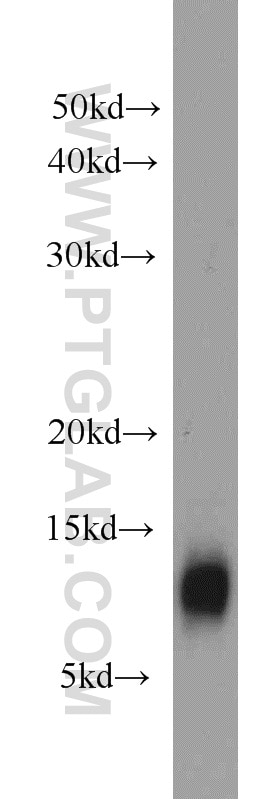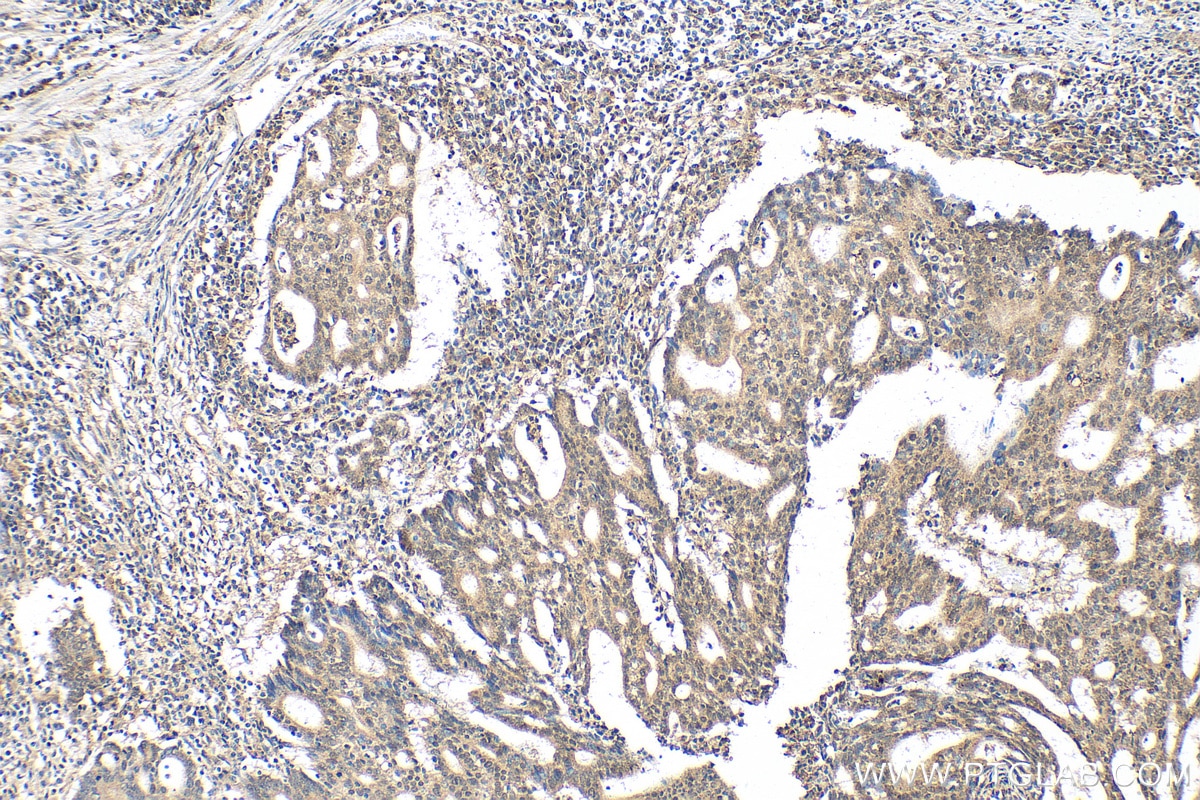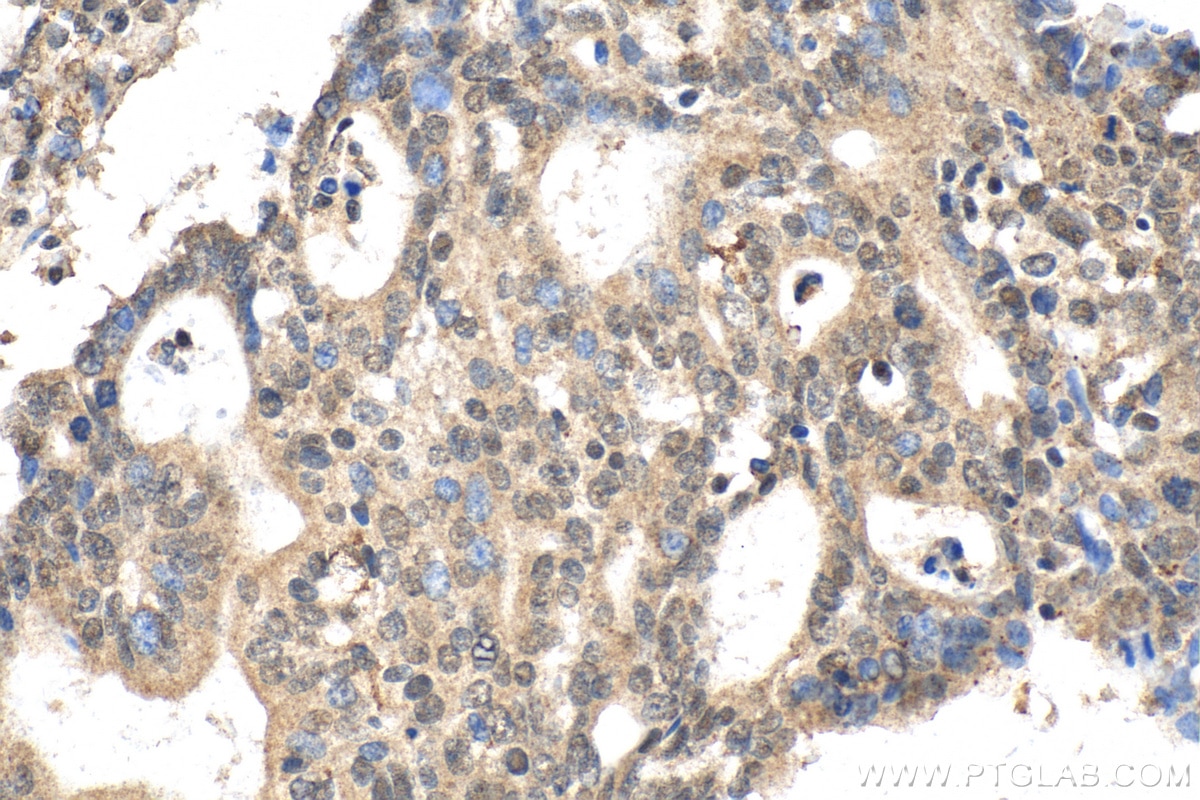Validation Data Gallery
Tested Applications
| Positive WB detected in | BxPC-3 cells |
| Positive IHC detected in | human endometrial cancer tissue Note: suggested antigen retrieval with TE buffer pH 9.0; (*) Alternatively, antigen retrieval may be performed with citrate buffer pH 6.0 |
Recommended dilution
| Application | Dilution |
|---|---|
| Western Blot (WB) | WB : 1:500-1:2000 |
| Immunohistochemistry (IHC) | IHC : 1:50-1:500 |
| It is recommended that this reagent should be titrated in each testing system to obtain optimal results. | |
| Sample-dependent, Check data in validation data gallery. | |
Published Applications
| KD/KO | See 1 publications below |
| WB | See 3 publications below |
| IHC | See 1 publications below |
| IF | See 1 publications below |
Product Information
15403-1-AP targets YPEL3 in WB, IF, IHC, ELISA applications and shows reactivity with human, mouse, rat samples.
| Tested Reactivity | human, mouse, rat |
| Cited Reactivity | human |
| Host / Isotype | Rabbit / IgG |
| Class | Polyclonal |
| Type | Antibody |
| Immunogen | YPEL3 fusion protein Ag7626 相同性解析による交差性が予測される生物種 |
| Full Name | yippee-like 3 (Drosophila) |
| Calculated molecular weight | 14 kDa |
| Observed molecular weight | 14 kDa |
| GenBank accession number | BC005009 |
| Gene Symbol | YPEL3 |
| Gene ID (NCBI) | 83719 |
| RRID | AB_11042587 |
| Conjugate | Unconjugated |
| Form | Liquid |
| Purification Method | Antigen affinity purification |
| UNIPROT ID | P61236 |
| Storage Buffer | PBS with 0.02% sodium azide and 50% glycerol , pH 7.3 |
| Storage Conditions | Store at -20°C. Stable for one year after shipment. Aliquoting is unnecessary for -20oC storage. |
Background Information
YPEL3 is part of a five-member family of closely related paralogues: YPEL1-5, which are named in reference to their Drosophila ortholgue. Studies showed shat YPEL3 is regulated by p53 and its encoding protein induces cellular senescence in human tumor and normal cells, indicating that YPEL3 is a p53-dependent, tumor suppressor gene. (PMID:20388804) 15403-1-AP was raised against full length of YPEL3 protein (1-119aa); it can recognize YPEL1-4.
Protocols
| Product Specific Protocols | |
|---|---|
| WB protocol for YPEL3 antibody 15403-1-AP | Download protocol |
| IHC protocol for YPEL3 antibody 15403-1-AP | Download protocol |
| Standard Protocols | |
|---|---|
| Click here to view our Standard Protocols |
Publications
| Species | Application | Title |
|---|---|---|
Int J Cancer Novel senescence associated gene, YPEL3, is repressed by estrogen in ER+ mammary tumor cells and required for tamoxifen-induced cellular senescence. | ||
Sci Rep Steroid sulfatase deficiency causes cellular senescence and abnormal differentiation by inducing Yippee-like 3 expression in human keratinocytes. | ||
Front Genet Identification of a cellular senescence-related-lncRNA (SRlncRNA) signature to predict the overall survival of glioma patients and the tumor immune microenvironment |


